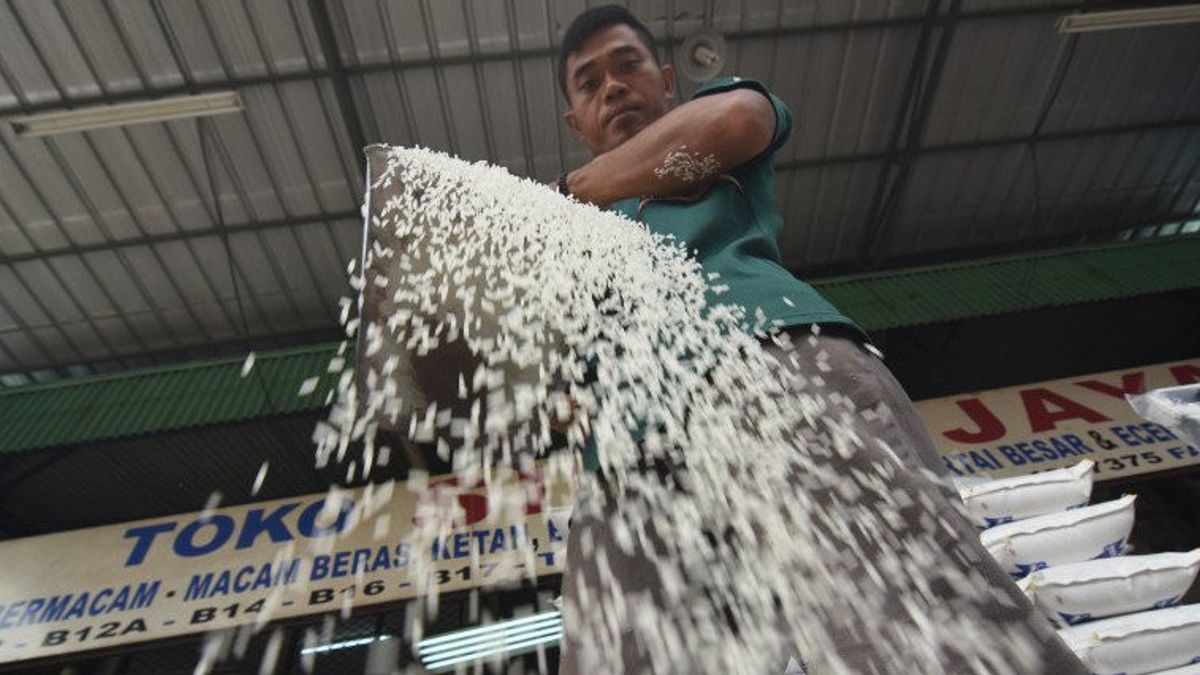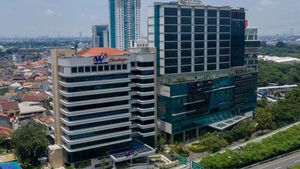JAKARTA - The government is starting to anticipate a spike in food prices towards the end of the year. Professor of the Bogor Agricultural Institute (IPB) Dwi Andreas Santosa, said that rice is one of the biggest contributors to food inflation because its price will rise until early 2023. However, according to him, this is historically reasonable and will not push food inflation too much.
"Prices are going up, for sure, because the cycle is like that. Rice prices go up during a famine, a normal cycle. It's only natural. Based on the latest data, until the end of December there were still 1.8 million in stock," said Andreas, Monday, November 28 yesterday.
Because of this, Andreas assessed, inflation from the food sector should still be maintained. Moreover, based on data from the Directorate General of Food Crops of the Ministry of Agriculture, there are stocks of 1.8 million tons of rice available in mills throughout Indonesia.
Meanwhile, Perum Bulog said that rice stock is currently only available at the level of 594 thousand tonnes. The government is targeting Bulog's rice reserves of at least 1.2 million tons. So Bulog asked to be able to import rice.
Nevertheless, Andreas criticized the plan to import rice. Because if imports are forced, they will come together with the main harvest. After all, he said, it has been three years since Indonesia succeeded in becoming self-sufficient in rice. Farmers also feel a good price for them.
"Say that there are still negotiations, it will only be 2-3 months until the main harvest, imported rice arrives. Farmers are enjoying good prices for rice, dry unhusked rice, let them enjoy this good one," explained Andreas.
On the other hand, Andreas asked the government to review the distribution of People's Business Credit (KUR) so that small farmer can enjoy it more.
"Improve the pattern of KUR distribution, because the most important thing is how it can be accessed by working farmers, not middlemen, farmers with rice mills, or MSMEs. Farmers who are on farms who can enjoy KUR are less than 1 percent," said Andreas.
It is known, the Coordinating Minister for the Economy Airlangga Hartarto, symbolically distributed KUR worth IDR 3.1 billion to 10 KUR debtors in the Pontianak area to support food security. The government, said Airlangga, is also trying to deal with potential price increases ahead of the end of the year.
Some of these include strengthening the coordination of the Central Inflation Control Team (TPIP) and the Regional Inflation Control Team (TPID), using regional funds, and strengthening inter-regional cooperation (KAD).
"The government has requested that regional governments use regional funds especially to support logistics, earlier there were several regions that had not used these funds."
"TPIP will write a letter so that this can be utilized and then note that in the future this inflation needs to be handled better so that our economic growth can be of high quality. This can be achieved if inflation can be suppressed," said Airlangga, Friday, November 25.
Reduce Food Imports
Meanwhile, Program Director of the Institute for Development of Economics and Finance (Indef) Esther Sri Astuti, assessed that the government should maintain food commodity stocks and strengthen local food absorption ahead of the National Religious Holidays (HBKN) Christmas 2022 and New Year 2023.
"Inflation is the key, so that prices do not continue to rise, the first is availability (availability) of food. If food stocks are maintained, demand increases, and supply is not limited, meaning enough, it will not increase prices. So what the government has to do is take care of food stocks," she said, Monday, November 28.
VOIR éGALEMENT:
According to her, besides the annual cycle, namely, inflation has increased in certain months such as Christmas, New Year, and Eid, future inflation will also be haunted by uncertain global conditions.
"But specifically for next year, inflation tends to be high because the impact of the pandemic has not yet been resolved. Relative mobility has not returned 100 percent. Added to this is the Russia-Ukraine conflict. The distribution of food and energy commodities is hampered," she said.
Therefore, Esther suggested that the government should also focus on reducing dependence on imported food commodities.
"Second, so that prices don't rise, don't depend on imported commodities. We are trying to meet our own needs with local materials," she said.
The English, Chinese, Japanese, Arabic, and French versions are automatically generated by the AI. So there may still be inaccuracies in translating, please always see Indonesian as our main language. (system supported by DigitalSiber.id)













